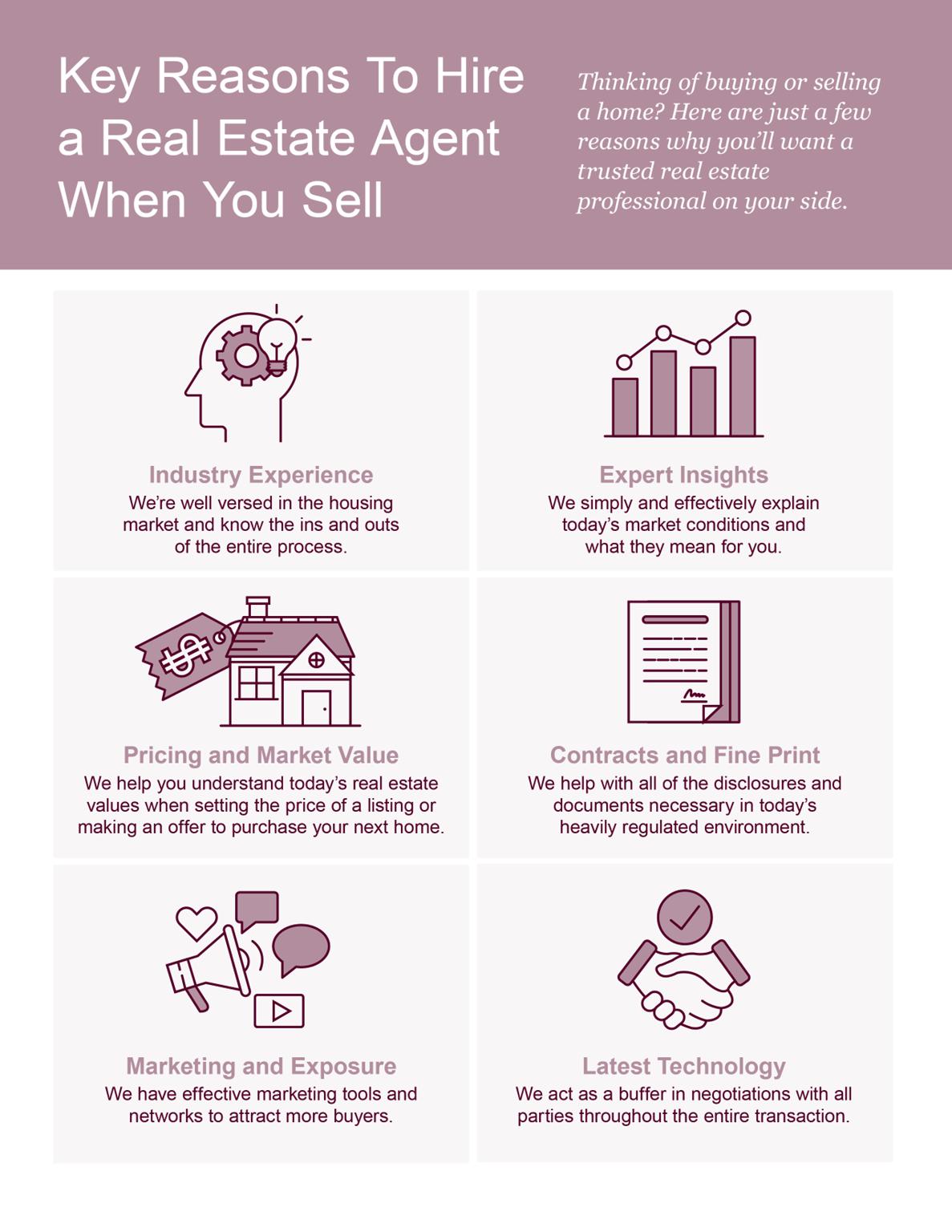Things To Consider When Selling Your House









With everything happening in the housing market recently, you might have some questions about selling your house. Here are a few things you might be wondering, and the answers to help you make a confident decision.

The supply of homes for sale is still low, so we’re still in a seller’s market today (see graph below). Selling while inventory is this low means if you price your house right, it’s likely to be in high demand. The graph below puts today’s inventory into perspective.
Buyer’s Market (> 7 Months)
Neutral Market (6-7 Months)
Today
Seller’s Market (< 6 Months)
If you’re thinking of selling your house but are concerned people aren’t buying homes in today’s market, you should know that there are still many active, interested buyers out there. According to Mike Simonsen, President at Altos Research:
“Demand has exceeded the available supply of homes . . .”
With more buyers than homes today, your house may be just what they’re looking for.
Recent data shows home prices have bottomed out and are now on the rise again in much of the country. And while prices vary by market, experts project they’ll rise and return to more normal levels of appreciation – around 4% per year – after 2023.
So, with the worst home price declines behind us and prices appreciating again today, you can still sell with confidence this season.
If you’re considering selling your house this fall, let’s talk so you have the expert advice and insights you need to make the best decision.



. . . the housing market is resilient, with approximately three offers for each listing.- Lawrence Yun, Chief Economist, National Association of Realtors

Are you thinking about selling your house? If so, know today’s market benefits you because there are very few homes for sale.
There aren’t enough homes for sale compared to the number of people who want to buy them.
The graph below uses historical data to provide a more concrete look at how much the numbers are still lagging behind the level of inventory typical of a more normal market:
It’s worth noting that 2020-2022 are not included in this graph. That’s because they were abnormal years for the housing market. To make the comparison fair, those have been omitted so they don’t distort the data. When you look at the orange bars representing 2023 and compare them to the years when the housing market was normal (2017-2019), you can see that the number of homes available for sale each month is still much lower than usual.
If you’re thinking about selling your house, that low inventory is why this is a great time to do so. Buyers have fewer choices now than they did in more normal years, which means your house will be in high demand. On top of that, you’ll have less competition from other sellers.
When there are only a few houses for sale, yours will get a lot of attention. If you've been thinking about selling, now is the time to take action. Let’s talk to begin the process.


When there is low housing inventory, sellers could get top dollar for their homes.
News & World Report
Are you torn on whether to sell your house right now because you don’t want to take on a higher mortgage rate on your next home? If so, your equity may be exactly what you need to help you feel more comfortable making your move.

When you sell your house, you can use your equity toward purchasing your next home. But first, it's important to know what equity is and how it grows.
Equity is the current value of your home minus what you owe on the loan. And recently, that equity has been growing far faster than you may expect.
Over the last few years, home prices rose dramatically, and that gave your equity a big boost very quickly. While the market has started to normalize, there’s still an imbalance between the number of homes available for sale and the number of buyers looking to make a purchase. And it’s because homes are in such high demand that prices are back on the rise today. Rob Barber, CEO of ATTOM, a property data provider, explains:
“Equity levels were high even during the recent downturn, and now they are going back up and better than ever.”
With today’s affordability challenges, that equity can be a game changer when you move. Here’s why: based on data from ATTOM and the Census, nearly two-thirds (68.7%) of homeowners have either paid off their mortgages or have at least 50% equity (see chart below):
68.7% Have Paid Off Their Mortgage or Have at Least 50% Equity
Mortgaged Homes with More Than 50% Equity
Mortgaged Homes with Less Than 50% Equity
Owns the Home Free and Clear
Sources: Census, ATTOM
That means roughly 70% have a tremendous amount of equity right now.
Once you sell your house, you can use your equity to help you with your next purchase. It could be some (if not all) of what you’ll need for your next down payment. It may even be enough to allow you to put a considerably larger down payment on your next home, so you don’t have to finance quite as much. And, if you’ve been in your current house for years, you may have even built up enough equity to pay all cash. If that’s true for you, you’d be able to avoid borrowing altogether, so you wouldn’t have to worry about today’s mortgage rates.
If you’re planning to make a move, the equity you’ve gained can make a big impact. To find out just how much equity you have in your current home and how you can use it to fuel your next purchase, let’s connect.
The average U.S. homeowner now has more than $274,000 in equity – up significantly from $182,000 before the pandemic.
 - Selma Hepp, Chief Economist, CoreLogic
- Selma Hepp, Chief Economist, CoreLogic

Today’s headlines are making things look worse than they are. If we take a year-over-year view, home prices did drop some, but that’s because we’re comparing to a very unusual year in the housing market. To avoid an unfair comparison to that previous peak, we need to look at monthly data. And that tells a very different and much more positive story.
The graphs below use recent monthly reports from three sources to show the worst home price declines are already behind us, and prices are appreciating nationally.

If you’re following the news today, you may feel a bit unsure about what’s happening with home prices and fear the worst is yet to come. Local home price trends still vary by market, but here’s what the national data tells us.
Looking at this monthly view, we can see the past year in the housing market can be divided into two parts. In the first half of 2022, home prices were going up, and fast. However, starting in July, prices began to go down (shown in red in the graphs on the previous page). By around August or September, the trend started to stabilize. But, looking at the most recent data for early 2023, these graphs also show that prices are going up again.
The fact that all three reports show prices have been going up for five or more straight months is an encouraging sign for the housing market. The month-over-month data indicates a national shift is happening – home prices are rising again.
Experts believe one of the reasons prices didn’t crash like some expected is because there aren’t enough available homes for the number of people who want to buy them. Even with today’s mortgage rates, there are more people looking to buy than there are homes available for sale.
Mark Fleming, Chief Economist at First American, explains how more demand than supply keeps upward pressure on prices:
“History has shown that higher rates may take the steam out of rising prices, but it doesn’t cause them to collapse entirely. This is especially true in today’s housing market, where the demand for homes continues to outpace supply, keeping the pressure on house prices.”
Doug Duncan, Senior VP and Chief Economist at Fannie Mae, states home price growth is exceeding expectations thanks to that high demand:
“. . . housing prices continue to show stronger growth than what was previously expected . . . Housing’s performance is a testimony to the strength of demographicrelated demand . . .”

If you’ve been waiting to sell your house because you were concerned about how changing home prices would affect its value, it might be a good idea to team up with a real estate agent to list your house. You don’t have to wait any longer because the latest data suggests things are turning in your favor.
If you delayed your moving plans because you were concerned about home prices dropping, the latest data reveals the worst is already over, and prices are appreciating nationally. Let’s connect so you know what's happening with home prices in our area.
Making sure you set the right price for your house is crucial right now. If you're planning to sell your house this fall, it's essential to price it appropriately for today’s market.
While this isn’t the frenzied market we saw over the past few years, homes that are priced right are still selling quickly and seeing multiple offers right now. Data from the National Association of Realtors (NAR) shows 74% of homes sold within a month and the average saw 3.0 offers in July.
To set yourself up to see advantages like these, you need to rely on an agent. Only an agent has the expertise needed to find the right asking price for your house. Here’s what’s at stake if that price isn’t accurate for today’s market value.
Price it too low and you might raise questions about your home’s condition or lead buyers to assume something is wrong with it. Not to mention, if you undervalue your house, you could leave money on the table, which decreases your future buying power.

On the other hand, price it too high and you run the risk of deterring buyers from ever touring it in the first place. When that happens, you may have to do a price drop to try to re-ignite interest in your house when it sits on the market for a while. Just be aware that a price drop can be seen as a red flag for some buyers who will wonder why the price was reduced and what that means about the home.
A recent article from NerdWallet sums it up like this:
“Your house’s market debut is your first chance to attract a buyer and it’s important to get the pricing right. If your home is overpriced, you run the risk of buyers not seeing the listing. . . . But price your house too low and you could end up leaving some serious money on the table. A bargain-basement price could also turn some buyers away, as they may wonder if there are any underlying problems with the house.”
Think of pricing your home as a target. Your goal is to aim directly for the center – not too high, not too low, but right at market value.
Pricing your house fairly based on market conditions increases the chance you’ll have more buyers who are interested in purchasing it. That makes it more likely you’ll see multiple offers too. Plus, when homes are priced right, they still tend to sell quickly.
To get a high-level look into the potential downsides of over or underpricing your house and the perks that come with pricing it at market value, see the chart below:
Pricing your house at market value is critical, so don’t rely on guesswork. Let’s connect to make sure your house is priced right for today’s market.

Deciding whether it’s the right time to sell your home is a very personal decision. There are numerous important questions to consider, both financial and lifestyle-based, before putting your home on the market. . . . Your future plans and goals should be a significant part of the equation . . .
- Bankrate

If you’re thinking about selling your house right now, chances are it’s because something in your life has changed.
While things like mortgage rates are a key part of your decision on what you’ll buy next, it’s important to not lose sight of the reason you want to make a change in the first place.
It’s true mortgage rates have climbed from the record lows we saw in recent years, and that has an impact on affordability. With rates where they are right now, some homeowners are deciding they’ll wait to sell because they don’t want to move and have a higher mortgage rate on their next home. As Danielle Hale, Chief Economist at Realtor.com, explains:
“. . . homeowners who locked in a 30-year fixed rate in the 2-3% range don’t necessarily want to give that up in exchange for a rate in the 6-7% range.”
But your lifestyle and your changing needs should matter more. Here are a few of the most common reasons people choose to sell today. Any one of these may be more important than keeping your current mortgage rate.

As
AliWolf, Chief Economist at Zonda, says:
“First-time and move-up buyers are both active . . . the latter driven by life changes. Divorce, marriage, new higher paid job, and existing home unsuitable all referenced.”
Things that might motivate a move include changing jobs, a desire to be closer to loved ones, wanting to live in a dream location, or just looking for a change in scenery.
For example, if you live in suburbia and just landed your dream job in NYC, you may be thinking about selling your current home and moving to the city for work.
Many homeowners sell to move up to a larger home. This is common when there’s a need for more room to entertain, a home office or gym, or additional bedrooms to accommodate a growing number of loved ones.
Homeowners may also sell to reduce maintenance and costs. Or, they may sell because someone’s moved out of the home recently and there’s more space than needed. It could also be that they’ve recently retired or are ready for a change.
Divorce, separation, or marriage are other common reasons individuals sell to buy different homes.
If a homeowner faces mobility challenges or health issues that require specific living arrangements or modifications, they might sell to find a home that works better for them.
For example, if you’re living in a condo and decide it’s time to seek out a home with more space, or if your household is growing, it may be time to find a home that better fits those needs.
For example, you’ve just kicked off your retirement and you want to move to somewhere you can enjoy the warm weather and have less house to maintain. Your new lifestyle may be better suited for a different home.
For example, if you’ve recently separated, it may be difficult to still live under one roof. Selling and downsizing may be better options.
For example, you may be looking to sell your home and use the proceeds to help pay for a unit in an assisted-living facility.
With higher mortgage rates, there are some affordability challenges right now – but your needs and your lifestyle matter too.
If you’re ready to sell your house so you can make a move, let’s connect. That way you have an expert on your side to help you navigate the process and find a home that can deliver on what you’re looking for.

Curb-appeal projects make the property look good as soon as prospective buyers arrive. While these projects may not add a considerable amount of monetary value, they will help your home sell faster—and you can do a lot of the work yourself to save money and time.


Selling your house without a real estate agent can be tough, as it involves challenges like preparing the home, setting the right price, and managing paperwork. A real estate agent's support can be invaluable, making the process smoother for you.

Effective marketing is a key piece of attracting qualified buyers to your property. Real estate agents have access to various marketing tools and platforms, including MLS listings, professional photography, virtual tours, and extensive professional networks. They can create a compelling listing that highlights your home’s best features and reaches a wider audience.
If you sell on your own, you may struggle to match the reach of agents, resulting in limited exposure and, ultimately, fewer potential buyers.
Today, more disclosures and regulations are mandatory when selling a house. And all the paperwork and legal aspects of selling a home can be a lot to manage. Selling a house without professional guidance exposes homeowners to potential liability risks and legal complications.
Real estate agents are well-versed in the contracts, disclosures, and regulations necessary during a sale. Their expertise helps minimize the risk of errors or omissions that could lead to legal disputes or delays.
Negotiating the terms of a home sale can be challenging, especially when emotions are involved. You may find it overwhelming to navigate these negotiations alone. Without an agent, you assume this responsibility on your own. This means you’ll have full accountability for working and negotiating with:
The buyer, who wants the best deal possible.
The buyer’s agent, who will use their expertise to advocate for the buyer.

The home inspection company, who works for the buyer.
The home appraiser, who assesses the property’s value to protect the lender.
Rather than going toe-to-toe with all these parties alone, lean on an expert. Real estate agents skillfully negotiate on your behalf and ensure that your best interests are protected. They have experience in handling tough negotiations, counteroffers, and contingencies. When you sell your house yourself, you’ll need to be prepared to manage these vendors on your own.
In today’s changing housing market, having a reliable, local real estate agent by your side is important to avoid mistakes during the selling process. As the National Association of Realtors (NAR), explains:
“A knowledgeable real estate agent will know what's required in your market, helping you avoid delays and costly mistakes. Also, there’s a lot of jargon involved in a real estate transaction; you want to work with a professional who can speak the language.”
An expert real estate advisor knows about national and local trends. They can explain how these trends affect you and help you make a decision based on trustworthy information.
While selling a home on your own might seem appealing at first, the challenges that come with it can quickly become overwhelming. The expertise that a real estate agent brings to the table is vital for a successful sale. Instead of tackling it alone, make sure you have an expert on your side.


“A knowledgeable real estate agent will know what's required in your market, helping you avoid delays and costly mistakes. Also, there’s a lot of jargon involved in a real estate transaction; you want to work with a professional who can speak the language.”
- National Association of Realtors

